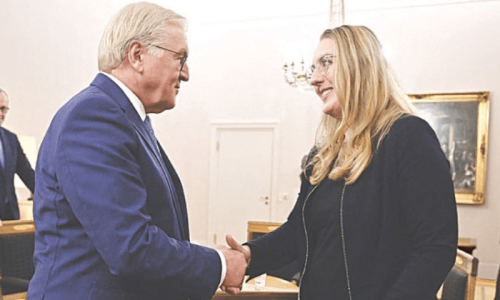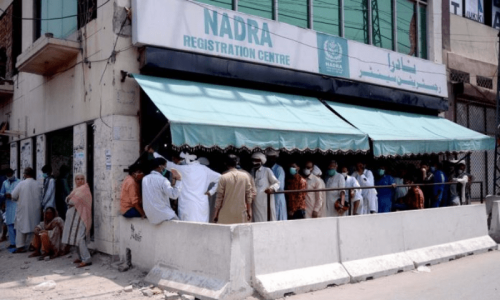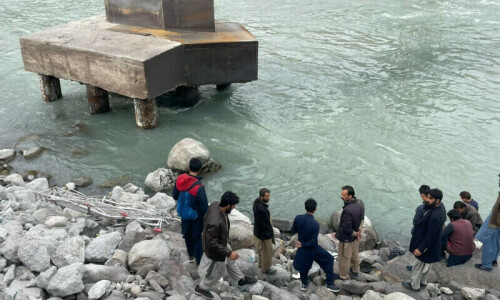 LUANDA: Angola’s parliamentary election on Friday will mark another big step in the oil-rich state’s emergence from decades of civil war to become one of Africa’s most important powers.
LUANDA: Angola’s parliamentary election on Friday will mark another big step in the oil-rich state’s emergence from decades of civil war to become one of Africa’s most important powers.
With one of the world’s fastest-growing economies thanks to surging oil output, the south-western African OPEC member already enjoys increasing influence, though critics say it still has a poor record on human rights and transparency.
President Jose Eduardo dos Santos, one of Africa’s longest-serving leaders, is banking on Angola’s first election since 1992 to improve the country’s image, especially after post-election turmoil in Kenya and Zimbabwe this year.
“If elections are in fact free and fair, this will give Angola and its president much-needed credibility,” Manuel Mwanza, a political analyst in Luanda, told Reuters.
“The timing is perfect, especially after disastrous elections in Kenya and Zimbabwe. These elections could help turn Angola into a major political power in Africa.”
With about 17 million people, Angola ranks only as Africa’s 17th most populous country, but its wealth from oil diamonds and other minerals, its geographical position and its well equipped armed forces allow it to punch above its weight.
To the west it has the Gulf of Guinea, where it rivals Nigeria as the continent’s top oil producer as well as for diplomatic influence. It is the biggest oil exporter to China and the sixth biggest to the United States.
Angola’s other borders give it a strategic position in central and southern Africa.
Recovery
Twenty-seven years of civil war between the government and rebels from the UNITA movement, the main opposition party, cost around one million lives and devastated Angola’s infrastructure until the death of rebel leader Jonas Savimbi in 2002.
Since then, the ruling MPLA has been rebuilding Angola with multi-billion dollar loans from China while the International Monetary Fund and others remained concerned about transparency — Human Rights Watch estimates $4.2 billion from oil revenues was unaccounted for between 1997 and 2002.
Economic growth is robust — gross domestic product rose over 24 per cent in 2007 — and analysts say Angola is now ready to clean up its image so it can extend its political and diplomatic power. The polls are part of that strategy.
Angola has used its weight in the region before, sending its forces into neighbouring Congo Republic and the Democratic Republic of Congo in the 1990s to ensure victory for the sides it backed, but now seeks to spread its influence much further.
In recent months, world leaders from East and West have flown into Luanda’s run-down airport to shake the hand of the president of what is on the way to becoming one of Africa’s richest countries.
Having left behind the African-tinged Marxism of the early years of the civil war, Angola is keen to open up to major economic powers.
The United States stresses the strength of ties.
In May, Nicolas Sarkozy became the first French president to visit for a decade. His aim was to improve political and business relations that had been strained for years by an international arms scandal known as Angolagate.
Angola has itself been looking further afield to invest.
It is developing a $500 million bauxite project in Guinea-Bissau, another former Portuguese colony, and state-owned oil company Sonangol has been building financial stakes in major Portuguese companies like bank Millennium bcp.
Diplomacy
It is not just about business.
President Jose Eduardo dos Santos has vowed to make the elections — Angola’s second — an example to Africa. Analysts believe that is a sign the long-serving but discreet leader may seek to play a bigger role as a mediator in the region.
A recent trip to Luanda by South African President Thabo Mbeki, mediating in Zimbabwe’s post-election crisis, was an indication of Angola’s growing influence. Mbeki and Dos Santos had long had frosty relations.
“It signals that South Africa, which has traditionally been sub-Saharan Africa’s biggest political player, increasingly recognises Angola’s growing role in the region,” said Mario Pinto de Andrade, the director of International Relations at Lusiada University in Luanda.
In a sign of Angola’s growing regional diplomatic importance, it recently chaired the Southern African Development Community’s policy, defence and security body.
Its global diplomatic weight has increased since it became the latest member of the Organisation of Petroleum Exporting Countries last year.
“Following these elections, only Swaziland, within the SADC, will not have held multiparty elections over the last 20 years,” Indira Campos, a researcher at London-based think-tank Chatham House, said in a research paper published on Monday.
“The Angolan elections can therefore also play a fundamental role in progress towards lasting regional stability, transparency in government and inclusive economic development.”—Reuters












































Dear visitor, the comments section is undergoing an overhaul and will return soon.